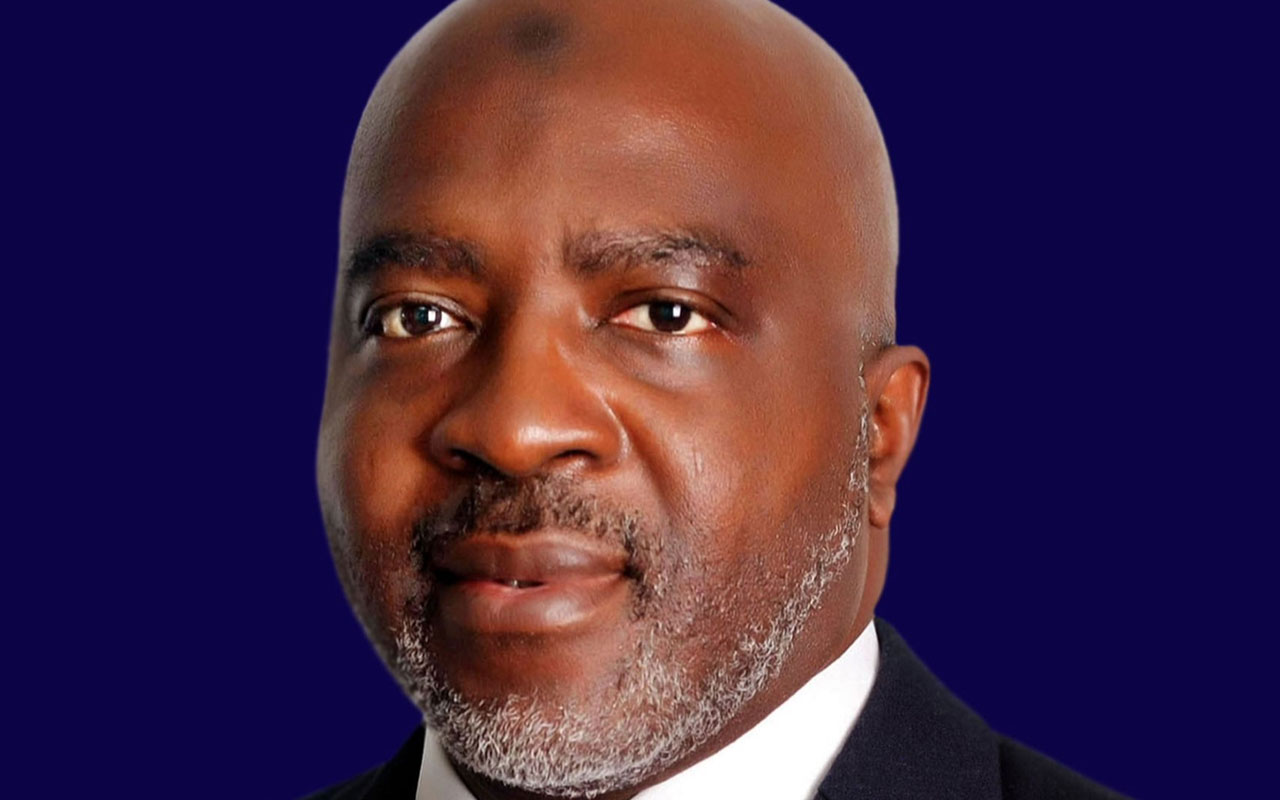
Ajibade Fashina is the Managing Partner at Kreston Pedabo. In this interview with KINGSLEY JEREMIAH, Ajibade discusses critical issues facing the Nigerian economy, including debt profile, subsidies and deregulation of the downstream segment of the petroleum industry, poor compliance with accounting standards by state governments and the many steps his organisation has been taken in the last 25 years to contribute to national development.
What is your perspective on the country’s debt profile? Should Nigerians be concerned about it?
National debts are a common challenge globally, with many countries experiencing substantial unsettled payment to GDP ratios. Nigeria’s ratio currently hovers around 37 per cent, nearing the government’s 40 per cent threshold. However, the primary concern isn’t the debt itself, but the purpose behind these loans. If borrowed funds are allocated to building infrastructure that stimulates economic growth, boosts GDP, and improves per capita income, it is a positive investment.
Nigerians should shift their focus to evaluating the level of investment in infrastructure and industrial development rather than fixating on the escalating debt profile. While the new government seems to have competent individuals, citizens need to vigilantly observe its economic direction. Supporting government initiatives involves fulfilling civic responsibilities, such as tax payments, and actively engaging in policy-making through national and state assemblies.
The Institute of Chartered Accountants of Nigeria recently reported that only three of Nigeria’s 36 states and the Federal Capital Territory (FCT) received ‘excellent’ ratings in ICAN’s assessment of states’ compliance with audit rules as of October 2023. What do you think is the cause, and what needs to be done to improve compliance?
States need to do better in terms of transparency, proper accountability, enforcement of code of ethics, implementation of whistleblowing policies and protection of whistleblowers, periodic reporting of the affairs and finances of the states and adhering to the rule of law. I work with some finance units of some state governments way back. We were engaged to train and provide basic accounting to all the staff working in the finance unit in the state across local government and state ministry. It took about two months.
We prepared a presentation for them that for you to be working in the finance unit, you need this minimum level account. We were shocked that there was no accounting knowledge at all, even the basic double entry to know that revenue was received and where it was going into. So we had to change the training programme. We started from the basics. That for us is a challenge.
These are people who are supposed to account for government revenue and expenditure, so that gap is there. I will not say it is deliberate because I know they have an accountant general and auditor General, who are also supposed to ensure that proper records are kept to all levels.
The ongoing war between Ukraine and Russia is often blamed for exacerbating the country’s economic challenges, which were already present owing to COVID-19. One significant issue is energy and subsidies. While questions remain about the deregulation of the downstream petroleum industry, how do you think the subsidy issue can be managed?
A critical aspect of public financial management is transparency, it helps in building trust in the polity and in ensuring effectiveness in government spending. Certainly, the government should implement a well-thought-out program of palliatives to cushion the effects of the economic hardship which came as a result of the removal of the subsidies, but a chunk of the savings should be invested in developing public infrastructure and in improving local refining capacity to meet our fueling needs.
We have the introduction of CNG options by government. The sustainability of the plan is very important. The CNG option provides relief for the people, and it provides a cheaper alternative. I think for government, it is something that is cheaper compared to PMS.
So, government’s effort to ensure that there are alternatives help us to move away from the use of fuel to gas, which is cheaper and sustainable. My worry is how government will sustain the plan. This is not the first time it is saying that it wants to move to gas operated vehicles. The costs are very huge if we have to set up the infrastructure .
I don’t think the government has the type of funds to sustain all of that but yes anything to ensure that day to day living of the ordinary man is made cheaper so long as the government can sustain it is good.
Can you provide an overview of Pedabo’s operational profile and what you can do about your achievements in the last 25 years?
Pedabo operates in the Professional Services Industry (PSI) and has gained reputation over the last two decades as one of the top Professional Services vis-d-vis accounting firms in Nigeria. Our service offerings include; Audit & Assurance Services, Tax Compliance and Advisory Services, Secretarial and Insolvency Services, Deals & Financial Advisory, and Strategy and Operations Consulting and Human Capital Consulting.
We operate a boundaryless model as we offer services to clients across the globe, leveraging the quintessential power of technology, while maintaining physical office locations in Lagos and Abuja. With a staff strength of about 170 professionals, we are able to deliver excellent service to our clients across different industries and sectors, with our pride being the doggedness, passion, commitment and intelligence of our human capital.
Starting from a firm of two young partners and one employee to 10 partners and over 170 employees is a major achievement. We have also garnered significant experience and expertise in working with large organizations, multinationals and listed companies as their trusted advisor and consultants. We pride ourselves as an indigenous brand that has grown to compete with all the international branded firms operating in Nigeria. These for us are major achievements we are immensely proud of.
You transitioned from being a member firm of Morison Global to joining the Kreston Global Network. Can you detail the benefits of this change for your organization and Nigeria,particularly in terms of promoting indigenous firms with a global presence?
Yes you are right. Our journey has taken us from being a standalone firm to joining a global association of firms and recently moved on to joining a global network of firms.
Morison Global is an Association of Firms in the Professional Services space, and with that association, we were able to network and collaborate with other firms within the association, looking at our strategy, however, we believe joining a network of firms will give more credence to our expertise and position us as a Global firm (Global outlook, local context) with capabilities to deliver services across geographies. We believe and are working towards ensuring that our firm takes a quantum leap in the next 25 years and be the leading firm in delivering outstanding services to our clients.
In a network, when my clients extend their businesses across borders, I aim to leverage our network partners to assist them in those countries without the need for my physical presence. Likewise, when partners seek to invest in Nigeria, I am positioned as the primary contact, ensuring they receive the same quality of service enjoyed by their international clients.
My vision for firm growth has always centered around being one of the leading professionals in Nigeria. I aspire for our firm to become the premier professional service provider originating from Nigeria, delivering quality services internationally. As we join the 50-year-old Crestin network, our goal is to grow alongside them, contributing to the establishment of a globally recognised professional service firm. I am optimistic about achieving this milestone within the next 25 years.
Given the current economic challenges in the nation, how can the steps you are taking support businesses and be scaled up to benefit the national economy?
The private sector is the backbone of every economy, and advising the organisations that make up that sector, in ensuring they stay in business and are profitable is not only a great service to those organisations but also to the economy, and this, we are committed to doing continuously.
From tax to auditing and advisory, what common mistakes do you think Nigerian firms are making that hinder their goals?
There are a number of mistakes we have identified, some of such are: poor records keeping, poor corporate governance, poor systems and controls, concentration risks (where processes are built around individuals). If these corporate issues are fixed, organisations will be more positioned to achieve their goals.
The Association of Small Business Owners of Nigeria recently stated that approximately 7.8 million small businesses have closed in the country in the last two years. With your new management consulting services that include tailored solutions in strategy, HR and operations for SMEs, what can be done differently to reverse this trend, considering the importance of these businesses to economic development and job creation?
While the Government needs to make policies that make credit easily available and provide grants/ low interest loans in supporting SMEs to scale up, the organisations also need to put proper systems in place to ensure the stability and growth of their businesses.
In light of global trends, where do you see the future of accounting in Nigeria?
Accounting has come to stay and will continue to improve. With technology such as Al and the blockchain, there is a lot of potential to be harnessed in the short and long term and Pedabo is positioned to champion a lot of innovation and best practices in that line in the coming years.
Accounting is becoming borderless because now most countries, the majority of countries except America I think, now use one regulation to prepare financial statements.
So that the financial statement prepared in Nigeria, can be picked up in the UK, and the application you give to it in Nigeria is the same as the way you give it in the UK. So, the alignment of reporting has opened borders, which makes it easier for accountants to work everywhere. Then, with the cloud way of reporting, for example, some of my colleagues decided to study abroad but did not want to lose employment there. They’re still working for the firm, but they are working from the UK, and that is because the files are saved to the cloud. This means that anywhere you are in the world, you have access to your work. Technology has made what we do much easier, competitive, and challenging.
Although there are issues around gaps in the system. With advancing technology, individuals seek to identify and exploit these gaps. Collusion and insufficient safeguards contribute to this problem.
To address these issues, companies are implementing checks and balances, with the Financial Reporting Council introducing guidelines for external consultants to assess internal controls. This ensures that financial statements are accurate. Regulators emphasise closing gaps to instill confidence in the system. In Nigeria, there’s a focus on preventing manipulated reports, with regulators insisting on signed reports being accurate and verifiable for increased confidence in the system.
Nigeria is considering tax reforms that would reduce the number of taxes levied by federal and state governments from over 60 to less than 10. What is your opinion on this plan?
This is a welcome development as multiplicity of taxes is not only a big distraction to most businesses but is also a drain in government’s effort to increase its revenue base. Two of the canons of taxation are certainty and convenience, this makes people aware of all the taxes applicable to them and ensures ease of compliance.
The Nigerian tax system has not effectively demonstrated these qualities in the recent past, so a successful restructuring of the system to bring this about will be most desirable for businesses and the economy, overall.






